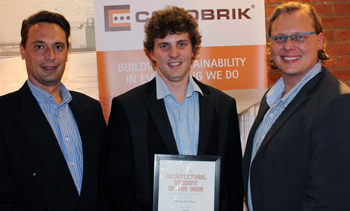Latest News Archive
Please select Category, Year, and then Month to display items
12 January 2024
|
Story Nonsindiswe Qwabe
|
Photo Sonia Small
 Since joining the UFS in 2008, Dr Grey Magaiza has worked extensively on approaches that can foster the socio-economic transformation of societies.
Since joining the UFS in 2008, Dr Grey Magaiza has worked extensively on approaches that can foster the socio-economic transformation of societies.
“The future should be one where communities can decide on their development agenda and futures. That’s the most important for me.” Dr Grey Magaiza, Deputy Director of the Centre for Gender and Africa Studies (CGAS) and Head of the Community Development programme on the Qwaqwa Campus, is passionate about capacitating communities to be agents of change and advancement. His vision for the future emphasises the empowerment of communities to take charge of their development by actively participating in decision making and the implementation of development projects that can improve their lives.
Since joining the UFS in 2008, Dr Magaiza has worked extensively on approaches that can foster the socio-economic transformation of societies. Over the years, he has crafted his research speciality into one that he is most proud of – being an interdisciplinary scientist immersed in the development of communities.
“I’m in a fortunate position of researching what I like. I say ‘fortunate’, because I’ve taken the time to understand what I’m passionate about, which is the overall field of rural livelihoods and livelihood futures – in short, community development. My research starts from an engaged university, understanding the elements that a university must use to enhance transformation and relevance to its immediate community in terms of development.”
One of the ways he has done this is by looking at social entrepreneurship as a development approach for young people in a rural setting. Through workshops with non-profit and civic organisations in Qwaqwa, Dr Magaiza has been helping these organisations to map out their needs and actively meet them through the involvement and support of external role players.
“We understand that communities are part of the national development agenda, but even that national agenda respects community knowledge and intentions and allows communities to shape their identity. A critical enabler of this is community organising. You bring back the capacity in communities to have dialogues on issues affecting them as spaces for engagement, knowledge exchange, and for people to just talk about their way forward.”
By enabling communities to define their development agenda, they can address their specific needs, challenges, and aspirations, he said. “When I look at livelihood futures, it’s quite an exciting aspect of my work – it’s like looking into a fortune tellers’ globe, because you’re not deciding for communities what they should do, but the communities themselves take those decisions.”
Department of Architecture recognises excellence
2014-11-20

From the left are: Gary Westwood, Marius du Plessis and Henry Pretorius
Photo: Ifa Tshishonge
Front page design by Marius du Plessis |
Marius du Plessis received the first prize in the Regional Corobrik Student of the Year Award for his design of a National Geothermal Research and Educational Centre in Johannesburg. The award ceremony was hosted by the Department of Architecture at the University of the Free State.
Anja Lareman was awarded the second prize for her Psychiatric Unit for the Deaf in Worcester and Mariska Peel received third prize for her design of a laboratory for the after oil epoch in Durban.
The Corobrik award for Best use of clay masonry brickwork was awarded to Valentino Moutzouris for his design of a Performing Arts Centre in Wynberg, Cape Town.
The event was well attended by architecture students who hoped to take home an award. Projects exhibited, received distinctions in one or all of the three main components, including design, the architectural theoretical treatise and building sciences.
“This is the greatest award that one could win in the Free State. It came with so much blood, sweat and tears, as I had to live, eat and work day and night at the same place in order to finish the project,” said Marius, master’s student in Architecture. He said that he hopes the project can be developed and implemented in mine shafts to solve the energy crisis in South Africa.
Henry Pretorius, Academic Departmental Head of Architecture, said: “It is vital for architecture to have a public interface. This event is to showcase the work of students and to make sure that it is accessible to the public. It encourages students to understand the value of their own work and its cognisance to society.”
Gary Westwood, Sales Manager of Corobrik Free State, Northern Cape and Lesotho region, said: “So far it has been an incredible journey. This annual event of 24 years is our way of giving back to the community who supports and sustains our business. It is wonderful to see how the architecture industry has adapted to a more sustainable way of design, by being part of the green movement.”
Marius will compete with other Corobrik winners from various universities on national level in April 2015.